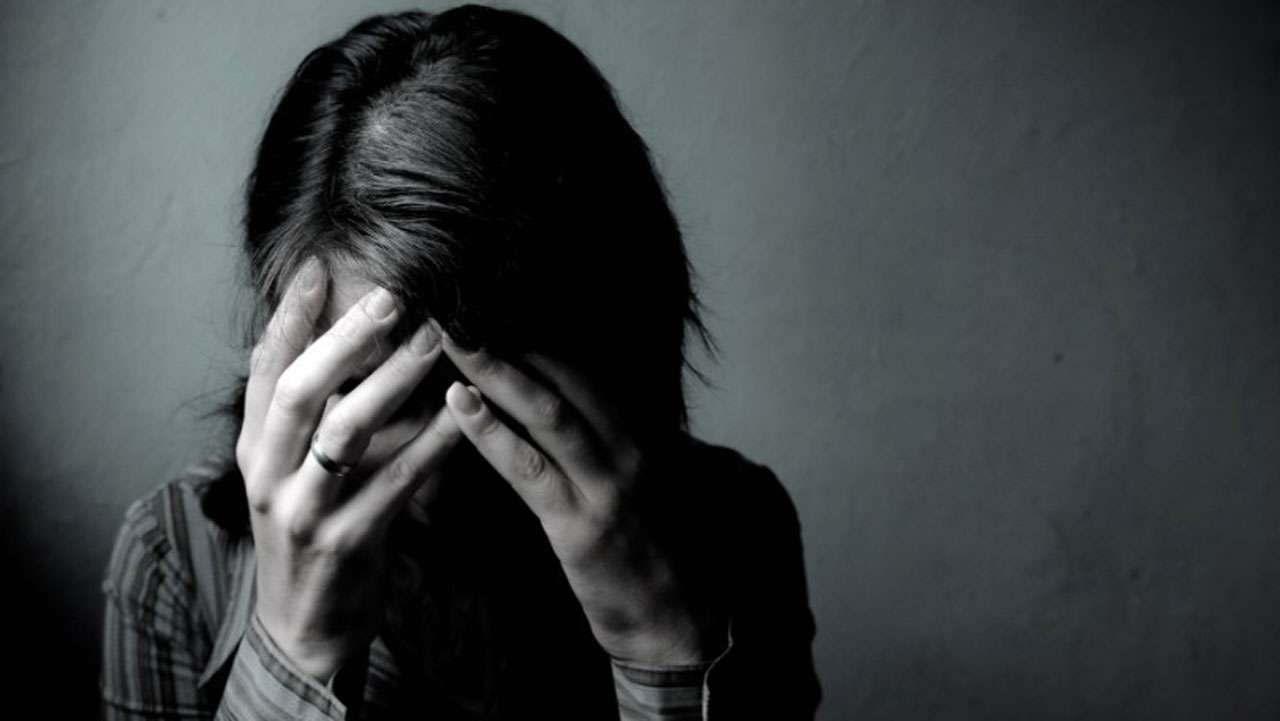Emotional Damage - What It Means And How To Overcome It
Everyone goes through bad patches where they feel despised. Everyday life can leave us feeling emotionally damaged, whether it be through a breakup, a generally poor experience, or something you didn't even realize at the time was traumatic. We can all agree that there are things holding us back from living the life of our dreams, but some of us may be struggling more than others.
Author:Suleman ShahReviewer:Han JuMar 02, 2023200 Shares200K Views

Everyone goes through bad patches where they feel despised.
Everyday lifecan leave us feeling emotionally damaged, whether it be through a breakup, a generally poor experience, or something you didn't even realize at the time was traumatic.
We can all agree that there are things holding us back from living the life of our dreams, but some of us may be struggling more than others.
Anything from the past that keeps bothering us can make it hard to enjoy the present.
Emotional damageisn't a medical diagnosis, but it can make you feel so overwhelmed that you have trouble going about your daily life.
With the help of the detailed analysis below, you can learn how to spot the early signs of emotional damage and take steps to avoid it.
What Is Emotional Damage?
When someone else hurts a person physically, either accidentally or on purpose, it could hurt their mental health.
Emotional damage can be the mental repercussions of physical wounds, such as brain trauma that leads to forgetfulness, insecurities caused by permanent scars, or physical reactions that stem from emotionally charged scenarios.
Some examples of emotional damage include forgetfulness, insecurities, and emotional scarring.

Coping with Emotional Pain
Causes Of Emotional Damage
You might have the impression that you suffer from emotional damage, or you might know someone else who does.
However, you are undoubtedly curious about the source of this problem.
What causes someone to develop these characteristics?
The following are some common factors that contribute to emotional harm:
Neglect In Early Childhood
Someone's emotional healthwould be severely compromised if they were ignored by one or both of their parents.
It's possible that we didn't get enough nourishment or love from our parents. They might not have been able to handle life on their own because they were using drugs.
Neglect as a youngster robs a person of the love, nurturing, and care they need to mature into a healthy human being.
As a result, they suffer psychological harm.
Rejection
Neglecting a child is awful, but rejection is worse.
Perhaps they weren't completely abandoned by their parents, but they were definitely rejected.
They may have called them names like "loser," "lazy," and "good-for-nothing," among others, suggesting that the individual would never achieve anything of value in life.
Rejection from the people who should love you the most can leave a severe emotional scar.
Your parents are tasked with shielding you from harm in the world.
That's why it's so devastating when they act otherwise: the effects can be long-lasting.
Loss And Stress
When you lose something or someone precious to you, you're certain to feel some level of stress.
Losing a loved one or going through a terrible experience can have a profound effect on your mental and emotional state.
It's not easy to get past these feelings.
When someone loses something, it can shatter their ideas about the world, which can make them want to be alone.
The damage done by a devastating loss is tough to restore.
Guilt And Shame
Rejection causes feelings of isolation and betrayal.
Most people definitely require social interaction, but they don't always obtain what they need.
And then they usually internalize it, which can lead to shame and guilt.
Failure to deal with guilt can have far-reaching consequences.
Feelings of remorse or embarrassment may or may not have a rational basis.
But if they let themselves believe that it is, it can hurt them deeply emotionally.
Dwelling In The Past
Unfortunately, tragedy has struck each of us at some point.
But it is bad for a person's emotional health to think about failures and disappointments from the past, whether they were real or imagined.
It's like opening up a scar over and over again; it never really closes.
Until you learn not to do that, the scar will remain visible.
Because it's so tough for them to let go of the past, they keep reliving the painful emotions linked to those events.
Failing In Your Endeavors
A person's mental health might be negatively impacted if they believe they have failed at anything important in their life.
A person's mental health suffers when they constantly beat themselves up for failing at anything they set their mind to, whether it be academics, work, or even just relationships.
A person's sense of failure in many things in life might become so internalized that they come to see themselves as "a failure."
What they're doing can come to define who they are. They feel devalued and useless because of it.
Obviously, this is a form of emotional harm.

How to cope with emotional pain
Loneliness And Solitude
Human connection is essential for most people.
So, if one has gone for long periods of time without communicating with others, it can be challenging to reconnect with old friends and acquaintances and make new ones.
An individual may conclude that nobody is concerned about them if something happens to them.
A major issue may develop if this is allowed to continue. It's a domino effect, in a way.
A person's propensity to interact with others decreases as their level of isolation rises.
More hurt feelings will result from this.
How To Tell If You’re Suffering From Emotional Damage
You may have experienced trauma that has left you emotionally scarred, making it difficult for you to feel complete peace and joy in any of your relationships.
You might not even realize how much your emotions have been hurt.
But these are also the best ways to tell if there is emotional damage and how to fix it.
Someone Seriously Betrayed Your Trust
Whether it was an ex-lover, a close friend, or a member of your own family, your trust was shattered like a finished beer can by someone you trusted.
This makes it even harder for you to let other people in and heal from the emotional wounds you've already suffered.
You Compare Your New Love To Your Ex
If you're seeing someone new and immediately start making comparisons to an ex who may have wronged you, that's a red flag that you're emotionally scarred.
You're still hurting from what they did, and it could turn into feelings for other people.
You Tend To Keep Others At A Safe Distance
You don't trust anyone, and so you don't give anyone the chance to get to know the real you.
Someone hurting you by taking advantage of your unique habits, quirks, or other parts of your personality has caused this emotional trauma.
You Are Always Evaluating Yourself In Relation To Others
One sign of emotional harm is a lack of confidence and an unhealthy fixation on comparing yourself to other people.
The feeling that you aren't adequate keeps coming back because someone once made you feel that way.
You Find Yourself Becoming Angry About Petty Things
When you're emotionally scarred, you're always on edge and easily irritated.
Your subconscious is so worried about keeping itself safe from harm that it makes you act defensively.
The Nervousness Of Making New Friends
If the prospect of making new friends, acquaintances, or perhaps a romantic interest sends your heart rate racing, it will show.
You're not sure you have the emotional fortitude to meet new people and maybe get hurt by them.
You Went Through A Horrific Breakup
If you've ever been through a painful breakup, you're probably emotionally scarred for life.
Breakups hurt, and that agony has a way of leaving scars.
A horrible breakup leaves emotional scars, and it doesn't matter what caused it.
You Suffered Terrible Pain For Quite Some Time
If you've ever spent weeks crying under your blanket after a breakup or some other traumatic incident in your life, you've experienced emotional damage.
It doesn't matter what caused the agony; the fact that it lasted for so long will leave a scar.
People Close To You Think You Have Problems
If you can't see the issues, maybe someone else can.
If those close to you have told you that you have difficulties forming relationships or interacting with others, it's likely that they're not exaggerating.
You’re Depressed
Depression may be caused by your genes, but your environment also plays a role.
If someone has never felt depressed before, this is a sign that they have been emotionally hurt.
Being By Yourself Satisfies You More
No one benefits from being on their own.
One of the best parts about being human is the insatiable need we have to connect with others.
It's a symptom of emotional harm to feel independent from others or to think that you'd be better off without close relationships.
You've Misused Drugs
Abusing any substance is always a sign that something is wrong emotionally or mentally.
You have emotional damage if you turn to drugs or alcohol to dull the pain or make life easier.
Overcoming Emotional Damage
Scars from emotional damage are just as hard to get rid of as those from physical damage.
Scars that go deeper than the skin's surface take time and effort to heal.
Here are some suggestions for healing the emotional wounds that have been inflicted.
Invest In Yourself And Your Development
Do something that will make you feel good about yourself, like going to the gym, getting a haircut, or buying a new pair of shoes.
If you dedicate some of your time to working on yourself, you'll find that you're able to move past your suffering.
Talk To Someone
Talking to someone about your feelings is a great way to start the healing process.
The first step toward healing from emotional pain is to share your thoughts and feelings with someone you trust.
Recognize That You Are Not Alone
It's easy for someone who is emotionally damaged to feel alone in their anguish.
The truth is that many people struggle with different aspects of their emotions, and you are not alone in your distress.
That's a comforting concept that can help relieve stress.
Try To Leave The Past Behind You
You can't blame yourself if you start holding grudges against new people for old wrongs.
However, do your best to let the past remain in the past.
Stay Away From Alcohol And Drugs
Some people's use of drugs and alcohol seems to coincide with psychological wounds.
If you're experiencing any of the aforementioned symptoms of emotional trauma, keep away from these until you feel like you can handle them again.
Avoid The Trap Of Pointing Fingers
It's human nature to want to pin your troubles on someone else.
It could be their fault, but if you hold a grudge for too long, the wounds won't heal as quickly.
Accept The Fact That It Will Take Some Time
You won't suddenly start feeling better. That is a proven fact.
It can take months or even years to go back to normal, and even then, the pain won't go away entirely.
You shouldn't ever try to entirely erase the emotional scars that helped shape who you are.
Talk To A Therapist
You should consider going to therapyif you feel that your emotional stress is interfering with your daily life or posing a threat to your health in some other way.
No matter what is making you feel bad, there are things you can do to relieve some of the stress while still learning from what you are feeling.
People Also Ask
What Does Emotional Damage Feel Like?
Feeling overwhelmed, powerless, or hopeless, feeling guilty without a clear cause, and spending a lot of time worrying are all indications of emotional trauma.
What Causes Emotional Damage?
A person's emotional health might take a serious hit as a result of anything that leaves them feeling vulnerable and unprotected.
It could be the result of a single event or the result of years of being hurt by things like physical or verbal abuse, harassment, discrimination, or being put down.
Is Emotional Damage Worse Than Physical?
But, unless we are in a very bad situation, mental suffering can have a much bigger effect on our daily lives than physical suffering.
How Can I Better Cope With Emotional Damage?
Do something relaxing like reading a book, listening to nature sounds you downloaded on your computer or phone, going for a walk, doing yoga, listening to music, singing or dancing along to music, taking a bath, closing your eyes and meditating, or lighting a candle.
Conclusion
Being emotionally scarred is not necessarily a negative trait.
It simply means that you have been tested more than others in your life and have come out on top despite the adversity you have faced.
This is how you may determine whether or not you belong in that category.

Suleman Shah
Author
Suleman Shah is a researcher and freelance writer. As a researcher, he has worked with MNS University of Agriculture, Multan (Pakistan) and Texas A & M University (USA). He regularly writes science articles and blogs for science news website immersse.com and open access publishers OA Publishing London and Scientific Times. He loves to keep himself updated on scientific developments and convert these developments into everyday language to update the readers about the developments in the scientific era. His primary research focus is Plant sciences, and he contributed to this field by publishing his research in scientific journals and presenting his work at many Conferences.
Shah graduated from the University of Agriculture Faisalabad (Pakistan) and started his professional carrier with Jaffer Agro Services and later with the Agriculture Department of the Government of Pakistan. His research interest compelled and attracted him to proceed with his carrier in Plant sciences research. So, he started his Ph.D. in Soil Science at MNS University of Agriculture Multan (Pakistan). Later, he started working as a visiting scholar with Texas A&M University (USA).
Shah’s experience with big Open Excess publishers like Springers, Frontiers, MDPI, etc., testified to his belief in Open Access as a barrier-removing mechanism between researchers and the readers of their research. Shah believes that Open Access is revolutionizing the publication process and benefitting research in all fields.

Han Ju
Reviewer
Hello! I'm Han Ju, the heart behind World Wide Journals. My life is a unique tapestry woven from the threads of news, spirituality, and science, enriched by melodies from my guitar. Raised amidst tales of the ancient and the arcane, I developed a keen eye for the stories that truly matter. Through my work, I seek to bridge the seen with the unseen, marrying the rigor of science with the depth of spirituality.
Each article at World Wide Journals is a piece of this ongoing quest, blending analysis with personal reflection. Whether exploring quantum frontiers or strumming chords under the stars, my aim is to inspire and provoke thought, inviting you into a world where every discovery is a note in the grand symphony of existence.
Welcome aboard this journey of insight and exploration, where curiosity leads and music guides.
Latest Articles
Popular Articles
